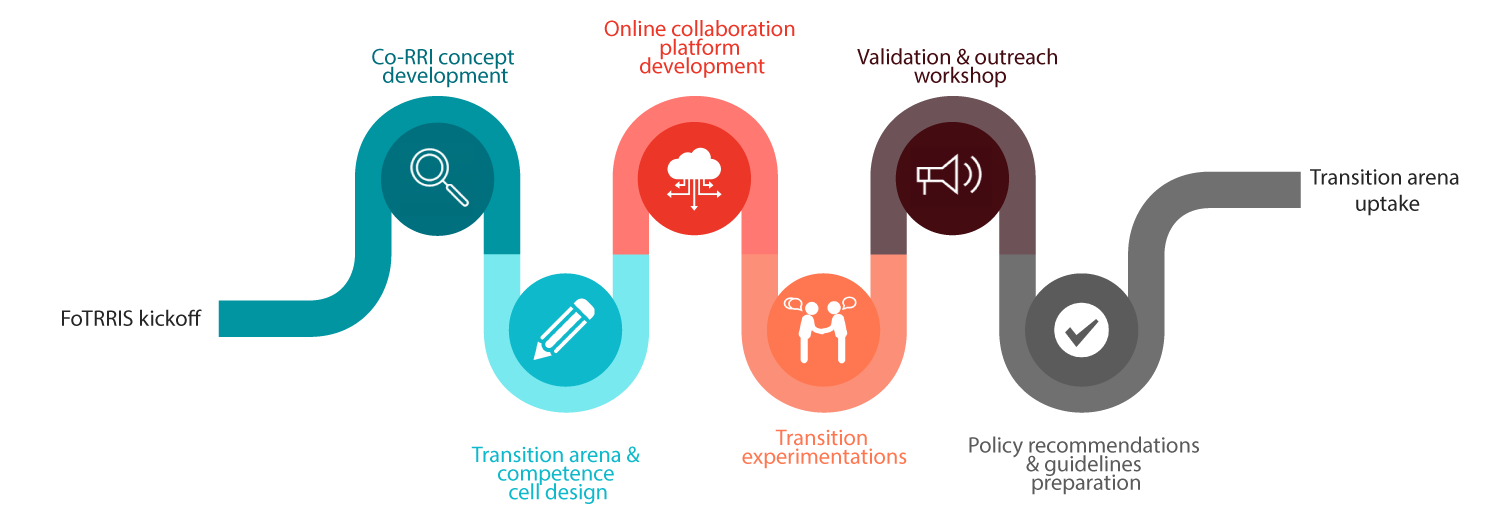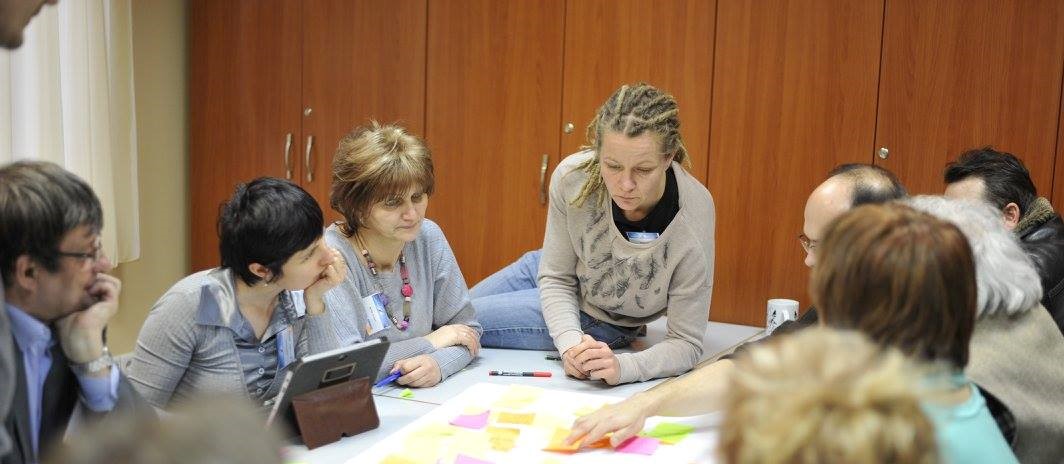FotRRIS is a transition experiment project to explore pathways toward Responsible Research and Innovation.
What is it?
FoTRRIS (Fostering a Transition Towards Responsible Research and Innovation Systems) aims to foster a transition of the existing Research & Innovation (R&I) system to a Responsible Research and Innovation (RRI) system, as we estimate that the current R&I system is not as responsible as it should be. Unleashing the potential of knowledge to benefit all appears therefore crucial.
René von Schomberg defines RRI as ‘a transparent, interactive process by which societal actors and innovators become mutually responsive to each other with a view to the (ethical) acceptability, sustainability and societal desirability of the innovation process and its marketable products (in order to allow a proper embedding of scientific and technological advances in our society).’
While we agree with René von Schomberg’s definition of RRI, we also deem necessary for the process to be as collaborative as possible. Therefore, FoTRRIS’s objective is to offer efficient and effective methods for researchers, citizens, businesses and policy-makers to solve ‘glocal’ challenges in a co-RRI way.
Our methodology relies on the design of transition arenas associated with a support unit called a competence cell. Transition arenas are groups of people interested in co-solving a glocal challenge. The competence cell will comprise trained researchers in co-RRI methodologies who will share their know-how with transition arena members.

Our local experiment
Our transition experiment, in which we test and refine the concepts of FotRRIS, entails the creation and implementation of a local economic development roadmap in the Wekerle district of Budapest, Hungary.
Who is responsible for it?
György Pataki
Bálint Balázs
Erzsébet Lengyel
For more info:
Official website
Twitter
Wekerle district
Local experiment’s Facebook

